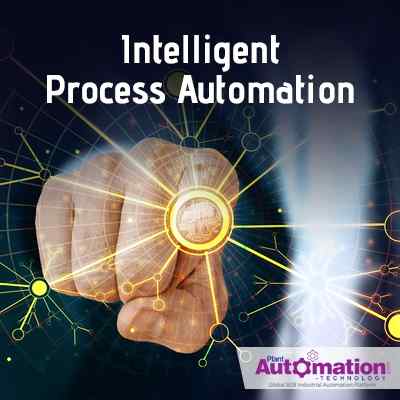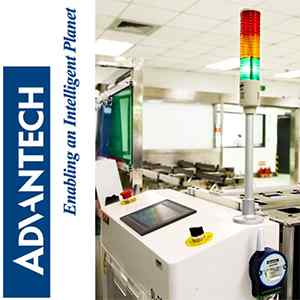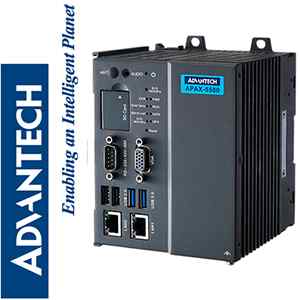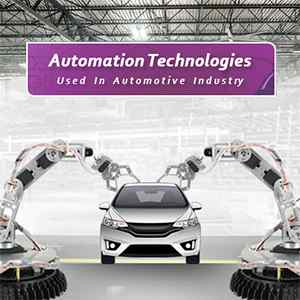Articles
An Insight into Intelligent Process Automation (IPA)

As part of the transformation, many companies are driven by the rapid development of technology. Complying with current trends, competitiveness, market shares etc play a dominant role.
To eradicate waste resources and reduce inefficiencies and errors, Intelligent Process Automation(IPA) is used. But, the question is, what to automate? How to automate? How to make it intelligent?
Processes can be made smarter using the Intelligent Process Automation (IPA) Solutions. They help to automate tasks as well as perform end-to-end business operations. Streamlined business performance, enhanced customer experiences and more efficient and effective operations can be obtained using the IPA solutions.
Market Trend of Intelligent Process Automation (IPA)
According to a report by Markets and Markets Analysis, the Intelligent Process Automation market was valued at USD 6.25 billion in 2017 and is projected to reach USD 13.75 billion by 2023, at a CAGR of 12.9% from 2018 to 2023.
The demand for enhanced automated IT systems, necessity for optimized resource utilization, enhanced decision-making, and increased investments for digital transformation of organizations are the key factors for the major growth of the market.
What is Intelligent Process Automation (IPA)?
Intelligent Process Automation (IPA) represents an evolved version of automation in which machines mimic human actions and posses cognitive capabilities, including natural language processing, speech recognition, computer vision technology, and machine learning.
These machines with automated intelligence understand the vast amount of unstructured, structured data and analyze, understand & learn it on the go. They intelligently automate processes to bring in more operational efficiency as well as business efficiency.
Implementing IPA in the business helps for business-process improvements and also assists the workers by removing duplicate, repetitive, and routine tasks. This will result in enhancing interactions and speeding up processes.
"Intelligent Process Automation (IPA) is Transforming the World of Automation."
Benefits of choosing Intelligent Process Automation (IPA):
• Increasing process efficiency
• Improving customer experience
• Optimizing back office operations
• Reducing costs as well as risks
• Optimizing the work force productivity
• More effective monitoring and fraud detection
• Product and service innovation
IPA in its full extent encompasses five core technologies:
Robotic Process Automation (RPA):
Robotic Process Automation (RPA) is used to automate rules-based tasks like document creation, calculations, checking files for errors. It involves the automation of standardized rules, system-based activities, other methods to support efficient business processes. RPA is suitable for executing the tasks or processes where they are too expensive or inefficient for humans to perform.
Example: A robot will be assigned a user ID just like a person to perform rules-based tasks such as accessing email and systems, performing calculations, creating documents and reports, and checking files.
Smart Workflow:
Smart workflow includes a process-management software tool that integrates tasks performed by groups of humans and machines. This workflow helps users to initiate and track the status of an end-to-end process in real time.
This process-management software helps to manage work between different groups, including between robots and human users, and provide statistical data on bottlenecks.
Machine Learning/Advanced Analytics:
Machine Learning is an application of Artificial Intelligence. The major aim of machine learning is to create intelligent machines which can think and work like human beings. Machine Learning involves statistical algorithms to make computers work in a certain way without being programmed. The algorithms receive an input value and predict an output, using certain statistical methods.
Applications of Machine Learning include Cognitive Services, Medical Services, Language Processing, Business Management, Image Recognition, Face Detection, Video Games
Advanced Analytics assist in enhancing compliance, reduce cost structures, and gain a competitive advantage from new insights.
Natural-Language Generation (NLG):
Natural-Language Generation (NLG) is a software process that automatically transforms data into written narrative. NLG tools will automatically analyze, interpret data, they will identify the most significant parts, and generate written reports in plain English.
Natural-Language Generation (NLG) brings artificial intelligence to business intelligence (BI), automating routine analysis, saving business users time and money.
Cognitive Agents:
Cognitive Agents combine machine learning and Natural-Language Generation (NLG) to build a virtual workforce (agent) that is capable of executing tasks, communicating, learning from data sets, and even making decisions based on emotion detection. Usually, cognitive agents are used to support customers/employees over the phone or via chat.
Conclusion:
Intelligent Process Automation (IPA) helps to identify and eliminate the performance bottlenecks while managing the business processes. Deploying IPA to your business, enhances efficiency, increases worker performance, reduces operational risks, and improves response times and customer journey experiences.





